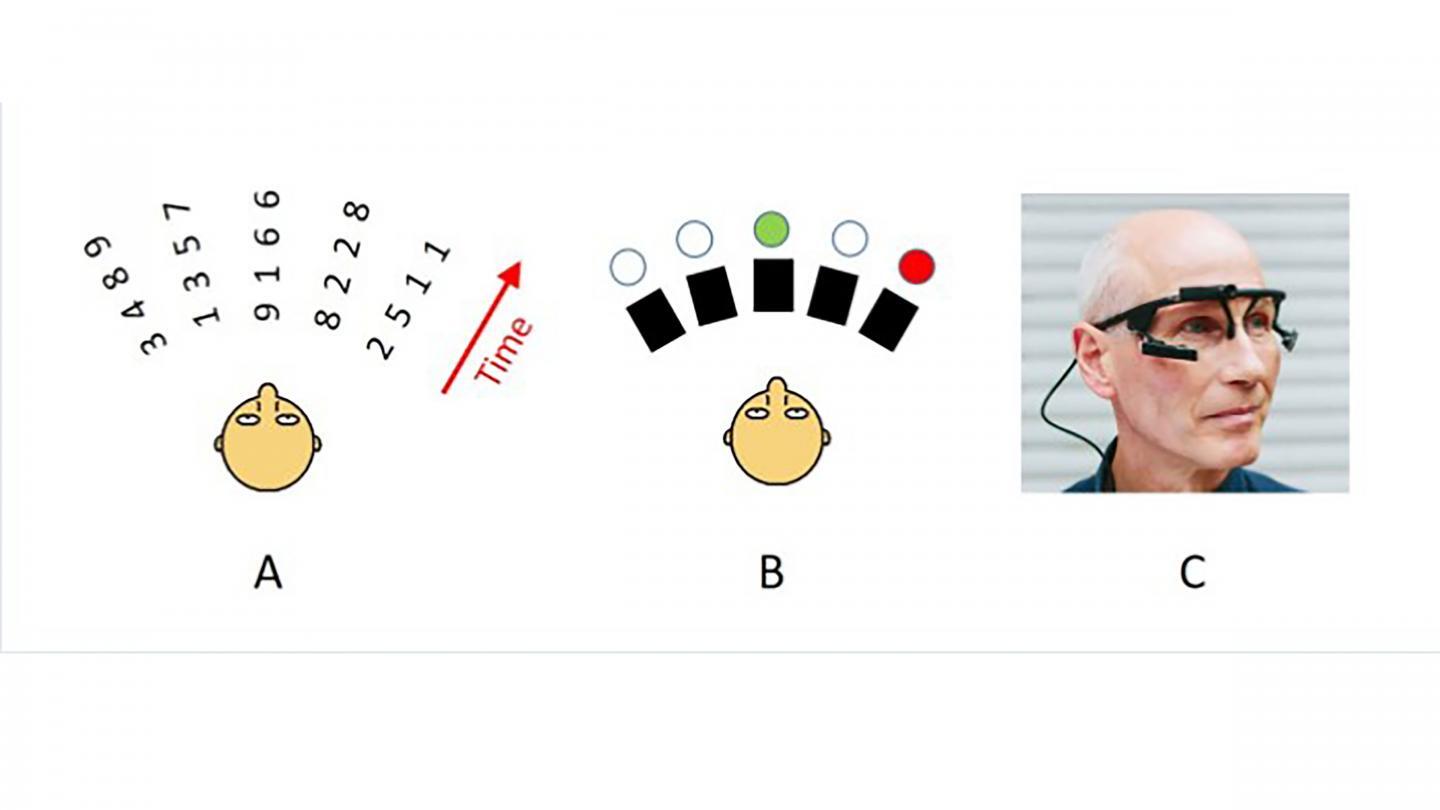New research is building on the novel suggestion that our ability to effectively hear something is somewhat influenced by the position of our eyes. The Boston University-led study has found auditory attention seems to be fundamentally intertwined with visual spatial attention. In other words, looking at the source of a sound may help you hear it better.
In the early 1950s, cognitive scientist Colin Cherry asked a deceptively simple question: how do we understand what one person is saying when others are speaking at the same time? Cherry called this “the cocktail party problem,” and over half a century later researchers are still working to find an answer.
Several hypothetical models proposed over the years have suggested our vision plays an important role in helping guide our auditory attention. Lip and face movements have been found to enhance a person’s auditory processing abilities, especially for those with hearing difficulties. But an important question still remains: does the act of looking in a certain direction actually direct our auditory attention in that same direction?
An intriguing 2018 study from neuroscientists at Duke University found a strange link between eye movement and vibrations in the eardrums. Even in the absence of any sound, the researchers saw distinct coordination between the eyes and the ears, suggesting our eardrums physiologically respond to spatial information in conjunction with what we are looking at in any given moment.
A new study, led by Virginia Best at Boston University, is offering some of the clearest evidence to date as to how our auditory attention can be influenced by our eyes. Best's work set out to revisit Cherry's "cocktail party problem" by simulating a scenario where one is in a group of several people, with multiple talkers competing for attention.
"Our primary motivation was an intuition that eye position may be especially critical within these situations, where there is substantial energetic and informational masking," explains Best. "A secondary motivation was our interest in visually guided beamforming, where the eyes are used to steer a highly directional hearing aid."

The research placed subjects in front of five loudspeakers and sequences of numbers were then played from different ones. Sometimes the subjects were directed to look at the loudspeaker playing the sound, and other times they were directed to visually fixate on a silent loudspeaker.
When asked to repeat back the number sequences, the researchers saw better results when the subjects were looking directly at the loudspeaker playing the sounds. When the subject's eyes were fixed on a silent loudspeaker, recitation performance suffered.
“This result demonstrates an influence of eye position in multitalker mixtures, even in the absence of visual information (lip-reading, etc.), and suggests that optimal performance depends on the spatial alignment of auditory and visual attention,” Best writes in the newly published study.
This kind of research implies auditory and visual attention are fundamentally intertwined and Best suggests optimal auditory processing requires a degree of spatial alignment between the ears and the eyes.
"Our task is theoretically applicable to any situation in which there are competing voices, including parties, restaurants, and meeting rooms," explains Best. "The reason we spend a lot of time studying these situations is because they are extremely difficult for people with hearing impairment and hearing aids."
The new study was published in the Journal of the Acoustical Society of America.
Source: Acoustical Society of America





